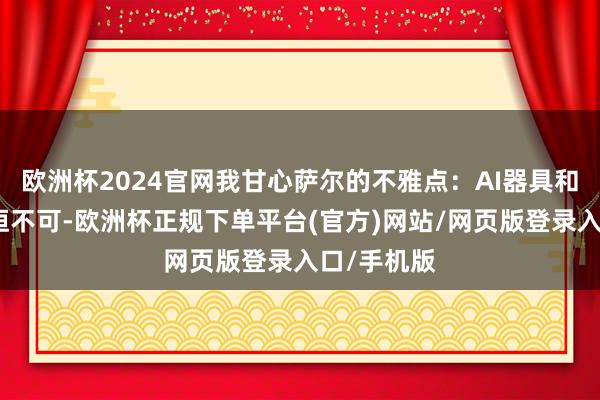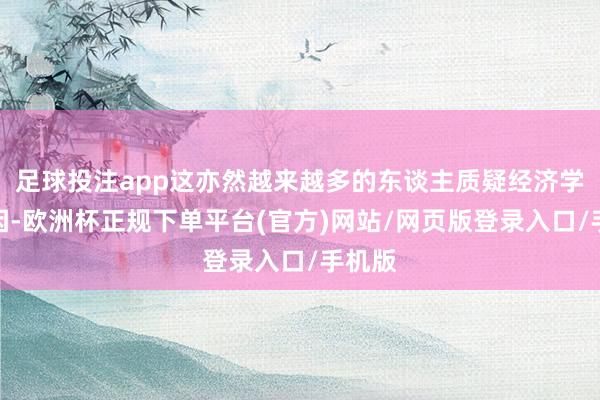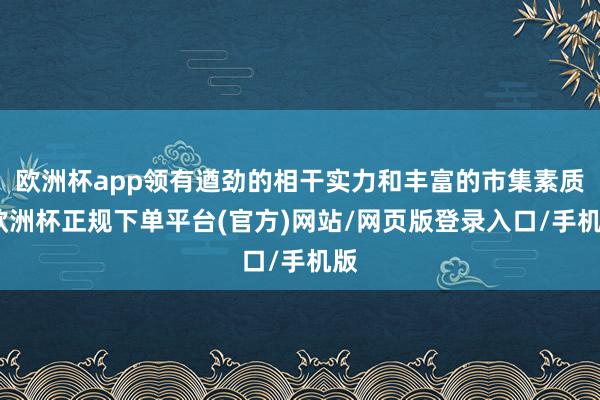
炒股就看金麒麟分析师研报,巨擘,专科,实时,全面,助您挖掘后劲主题契机!
开端:比尔盖茨

当GPT-4o上周发布时,统统这个词互联网(乃至全天下)的东说念主们齐为之战栗。之前与AI对话总嗅觉有些不实在,但OpenAI的最新模子会让你合计是在与真东说念主对话。你不错真确与它交谈,它也会毫无延伸地复兴你。它是迄今为止咱们见过的最传神的AI,其利用场景是无尽的。我早先意想的等于它将给课堂带来多大的改变,设想一下,每个学生齐会有一个由这项时刻启动的个东说念主指导员。
我最近读了一册对于这个话题的好书——《勇敢新语(Brave New Words)》。这本书的作家是我的一又友(同期亦然播客嘉宾)萨尔·可汗(Sal Khan),一位诠释创新的前驱。早在2006年,萨尔就创办了可汗学院,旨在将他为家东说念主制作的指导执行共享给更平庸的受众。从当时起,他的在线诠释平台仍是匡助了大众脱落1.5亿东说念主,也包括我和我的孩子们。
早在最近的AI激越之前,我就认为他是一位有远见的东说念主。当得知他在写这本书时,我就迫不足待地想要阅读。如我所料,《勇敢新语》是一部大众级作品。
萨尔逐章向读者先容了他对AI在诠释范围诸多利用的量度——有些在本书成书后仍是结束。他的主要论点是:AI将从根底上改善学生的学习效用和西宾的教训体验,并匡助独创一个东说念主东说念主齐能接管天下一流诠释的翌日。
你可能会持怀疑派头,尤其是如若你和我一样,仍是关切诠释时刻(EdTech)通晓有一段时候了。几十年来,各式令东说念主得意的时刻和创新时常登上新闻头条,也常伴跟着访佛的斗胆承诺,声称要透顶改变咱们所知说念的学习和教训形状——限度却只在课堂上产生了一些旯旮化的影响。
但鉴戒他打造Khanmigo(一个由AI启动的指导员)的提醒,萨尔建议了一个令东说念主信服的论点,即AI启动的时刻将会有所不同。这是因为咱们终于有了一种门径,不错为每个学生提供那种之前大多半课堂和孩子齐无法得回的个性化学习、撑持和指导。正如萨尔所说,“为每个学生配备一个专属的、随叫随到的东说念主类指导员,资本太高了。”而AI指导员则否则。
设想一下:你是又名七年齿学生,数学获利跟不上。但当今,你身边有了一个像萨尔描摹的AI指导员。当你在作念一组具有挑战的分数筹办题时,它不会平直给你谜底,而是将每个问题理会成可通晓的法子。当你困在难点时,它会给你提供易于通晓的解释,并在正确的方进取轻轻推你一下。当你最终解出谜底时,它会生成有针对性的锻真金不怕火题,匡助你诞生通晓和信心。
在AI指导员的匡助下,历史学问不错变得有血有肉。当你学习亚伯拉罕·林肯(Abraham Lincoln)在内战期间的指导力时,你以致不错与第16任总统本东说念主进行“对话”。(正如萨尔在书中展示的,与我最心爱的文体东说念主物之一杰伊·盖茨比(Jay Gatsby)对话亦然一种采用。)
当需要写论文时,无谓惦记那令东说念主怯生生的空缺页。相背,你的AI指导员主张过启发念念路的发问,匡助你进行头脑风暴。你会在几秒钟内得到针对你论文提纲的响应,包括完善逻辑的建议或需要更多议论的地点。在你撰写初稿时,AI导师会实时评估你的写稿(莫得这种时刻就作念不到这点),并指出你不错证实不雅点、提供更多论据或进行一些辩述。在你提交之前,它会给出认确切建议,以更正你的用语并隆起你的论点。
这算是舞弊吗?
这是一个复杂的问题,且并莫得一刀切的谜底。萨尔指出,与一又友谋划方针、请家东说念主对作品进行点评、使用像Grammarly这么的拼写搜检器和器具(不错改写统统这个词句子)在今天的大多半表率下齐不被视为舞弊。相似,如若使用适应,AI不是为学生办事,而是与他们协作,鼓动那些可能会让他们堕入逆境的事情上前发展。凭证萨尔的说法,这等于为什么许多率先辞让在课堂上使用AI的诠释办事者当今齐饱读舞学生使用它。
毕竟几年后,掌持AI可不单是是镌脾琢肾——对于许多工作来说,这将是必要的。能够高效使用AI的职工将比那些不会使用AI的职工更有价值。通过将这项时刻融入诠释,咱们不仅会改善学生的学习体验和效用,还在为他们翌日的办事作念准备——这些办事跟着AI的加入将变得愈加雅瞻念和充实。
这也包括教训。每次出现变革性的创新时,齐会有对机器抢走东说念主类办事的担忧出现。但在诠释方面,我甘心萨尔的不雅点:AI器具和指导员永恒不可,也不应该取代西宾。AI应该作念的是撑持和赋能西宾。
迄今为止,大多半诠释时刻贬责决策约略齐很优秀,却齐莫得显赫削弱西宾的包袱。但有了AI,他们就不错领有一个超东说念主般的助教,来处理备课和打分等日常办事——这些办事简直会占据一个泛泛西宾半天的时候。只需几秒钟,AI助教就能改变完拼写测试,或创建一个将工业创新与时局联系起来的课程筹划。它以致不错监控每个学生的学习过程,并向西宾提供即时响应,从而独创个性化学习的新期间。
有了AI助手处理琐碎事务,西宾就不错专注于他们最擅长的办事:激发学生、诞生关系,并确保每个学生齐能感到我方被看见和撑持,尤其是那些需要异常匡助的孩子。
天然,将AI大限制引入学校也靠近许多挑战,萨尔对此也快言快语。咱们需要能保护学生秘籍和减少偏见的系统。要让每个孩子齐能得回使用AI所需的开发和网罗流通,还有许多办事要作念。莫得哪种时刻是诠释的灵丹灵药。但我肯定,AI不错在课堂、职场过头它范围改变游戏轨则,涌现开阔的对等作用。
我最近参不雅了新泽西州纽瓦克的第一正途学校,哪里正在试点使用Khanmigo。天然还处于初期阶段,但我仍咋舌于能够亲眼目睹AI怎样利用于课堂教训,并与仍是从中获益的学生和真诚相易。这种嗅觉就像窥见了翌日。莫得东说念主比萨尔·可汗更了解翌日诠释的发展标的,因此我热烈推选这本《勇敢新语》。
When GPT-4o launched last week, people across the internet (and the world) were blown away. Talking to AI has always felt a bit surreal—but OpenAI’s latest model feels like talking to a real person. You can actually speak to it, and have it talk back to you, without lags. It’s as lifelike as any AI we’ve seen so far, and the use cases are limitless. One of the first that came to my mind was how big a game-changer it will be in the classroom. Imagine every student having a personal tutor powered by this technology.
I recently read a terrific book on this topic called Brave New Words. It’s written by my friend (and podcast guest) Sal Khan, a longtime pioneer of innovation in education. Back in 2006, Sal founded Khan Academy to share the tutoring content he’d created for younger family members with a wider audience. Since then, his online educational platform has helped teach over 150 million people worldwide—including me and my kids.
Well before this recent AI boom, I considered him a visionary. When I learned he was writing this book, I couldn’t wait to read it. Like I expected, Brave New Words is a masterclass.
Chapter by chapter, Sal takes readers through his predictions—some have already come true since the book was written—for AI’s many applications in education. His main argument: AI will radically improve both student outcomes and teacher experiences, and help usher in a future where everyone has access to a world-class education.
You might be skeptical, especially if you—like me—have been following the EdTech movement for a while. For decades, exciting technologies and innovations have made headlines, accompanied by similarly bold promises to revolutionize learning and teaching as we know it—only to make a marginal impact in the classroom.
But drawing on his experience creating Khanmigo, an AI-powered tutor, Sal makes a compelling case that AI-powered technologies will be different. That’s because we finally have a way to give every student the kind of personalized learning, support, and guidance that’s historically been out of reach for most kids in most classrooms. As Sal puts it, “Getting every student a dedicated on-call human tutor is cost prohibitive.” AI tutors, on the other hand, aren’t.
Picture this: You‘re a seventh-grade student who struggles to keep up in math. But now, you have an AI tutor like the one Sal describes by your side. As you work through a challenging set of fraction problems, it won’t just give you the answer—it breaks each problem down into digestible steps. When you get stuck, it gives you easy-to-understand explanations and a gentle nudge in the right direction. When you finally get the answer, it generates targeted practice questions that help build your understanding and confidence.
And with the help of an AI tutor, the past comes to life in remarkable ways. While learning about Abraham Lincoln’s leadership during the Civil War, you can have a “conversation” with the 16th president himself. (As Sal demonstrates in the book, conversations with one of my favorite literary figures, Jay Gatsby, are also an option.)
When the time comes to write your essay, don’t worry about the dreaded blank page. Instead, your AI tutor asks you thought-starters to help brainstorm. You get feedback on your outline in seconds, with tips to improve the logic or areas where you need more research. As you draft, the tutor evaluates your writing in real-time—almost impossible without this technology—and shows where you might clarify your ideas, provide more evidence, or address a counterargument. Before you submit, it gives detailed suggestions to refine your language and sharpen your points.
Is this cheating?
It’s a complicated question, and there’s no one-size-fits-all answer. Sal notes that bouncing ideas off friends, asking family members to critique work, and using spellcheckers and tools like Grammarly—which can rephrase entire sentences—aren’t considered cheating today by most measures. Similarly, when used right, AI doesn’t work for students but with them to move something forward that they might otherwise get stuck on. That’s why, according to Sal, a lot of educators who first banned AI from class are now encouraging students to use it.
After all, mastery of AI won’t just be nice to have in a few years—for many professions, it’ll be necessary. Employees who can use AI effectively will be far more valuable than those who can’t. By incorporating this technology into education, we‘re both improving students’ experiences and outcomes and preparing them for the jobs of the future—which will become more enjoyable and fulfilling with AI in the mix.
That includes teaching. With every transformative innovation, there are fears of machines taking jobs. But when it comes to education, I agree with Sal: AI tools and tutors never can and never should replace teachers. What AI can do, though, is support and empower them.
Until now, most EdTech solutions, as great as they may be, haven’t meaningfully made teachers’ lives easier. But with AI, they can have a superhuman teaching assistant to handle routine tasks like lesson planning and grading—which take up almost half of a typical teacher‘s day. In seconds, an AI assistant can grade spelling tests or create a lesson plan connecting the Industrial Revolution to current events. It can even monitor each student’s progress and give teachers instant feedback, allowing for a new era of personalized learning.
With AI assistants handling the mundane stuff, teachers can focus on what they do best: inspiring students, building relationships, and making sure everyone feels seen and supported—especially kids who need a little extra help.
Of course, there are challenges involved in bringing AI into schools at scale, and Sal is candid about them. We need systems that protect student privacy and mitigate biases. And there’s still a lot to do so that every kid has access to the devices and connectivity they need to use AI in the first place. No technology is a silver bullet for education. But I believe AI can be a game-changer and great equalizer in the classroom, the workforce, and beyond.
I recently visited First Avenue School in Newark, New Jersey, where Khanmigo is currently being piloted. We’re still in the early days, but it was amazing to see firsthand how AI can be used in the classroom—and to speak with students and teachers who are already reaping the benefits. It felt like catching a glimpse of the future. No one understands where education is headed better than Sal Khan, and I can‘t recommend Brave New Words enough.
股市回暖,抄底炒股先开户!智能定投、要求单、个股雷达……送给你>>
 海量资讯、精确解读,尽在新浪财经APP
海量资讯、精确解读,尽在新浪财经APP
职责裁剪:杨赐 欧洲杯2024官网



